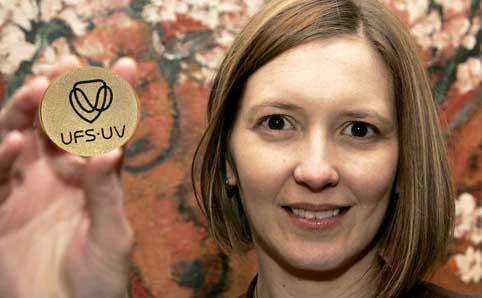Latest News Archive
Please select Category, Year, and then Month to display items
12 October 2020
|
Story Arina Engelbrecht
|
Photo Supplied
 Arina Engelbrecht from Organisational Development and Employee Well-being believes physical activity has a number of benefits for one’s health, including stress relief.
Arina Engelbrecht from Organisational Development and Employee Well-being believes physical activity has a number of benefits for one’s health, including stress relief.
Being physically active plays a big role in preventing the development of mental-health problems and in improving the quality of life of people experiencing mental-health problems.
Treatment for depression
Physical activity can be an alternative treatment for depression. It can be used as a stand-alone treatment or in combination with medication and/or psychological therapy. It promotes all kinds of changes in the brain, including neural growth, reduced inflammation, and new activity patterns are formed that promote feelings of calm and well-being. It releases endorphins – powerful chemicals in the brain that energise your spirit and make you feel good.
Physical activity can be very effective in relieving stress. Research in adults has found that physically active individuals tend to have lower stress levels compared to individuals who are less active. It also leads to improved sleep. When a person sleeps better and feels more rested, overall quality of life improves. They cope better with daily life stressors.
Reduce Alzheimer's risk
Regular physical activity can reduce your risk of developing Alzheimer's disease by up to 50%. It can also slow down further deterioration in those who have already started to develop cognitive problems. It stimulates the brain’s ability to maintain old connections as well as to make new ones.
A study asked people to rate their mood immediately after periods of physical activity (e.g. going for a walk/run, cycling, doing housework) and periods of inactivity (e.g. reading a book or watching television). Researchers found that participants felt more content, more awake, and calmer after being physically active compared to after periods of inactivity.
In conclusion, people who are physically active feel a sense of well-being, feel more energetic throughout the day, sleep better at night, have sharper memories, and feel more relaxed and positive about themselves and their lives.
“Being physically active not only changes your body, it changes your mind,
attitude, and your mood.” – Arina Engelbrecht
Computer Science lecturer receives Vice-Chancellor’s Award for teaching excellence
2011-11-11
 |
|
Dr. Liezel Nel from our Department of Computer Science.
Annually, many lecturers receive awards and recognition for their contribution to the UFS’s plans to accomplish outstanding academic performance.
Photo: Johan Roux
|
This year, the UFS presented its fourth awards function for outstanding learning and teaching.
At the awards function this past week, lecturers were rewarded for their outstanding teaching inputs at the UFS.
Dr Liezel Nel from our Department of Computer Science and Informatics was awarded the Vice-Chancellor’s award for her outstanding contribution to teaching and learning at the UFS.
The award, together with other awards presented to lecturers for outstanding teaching and learning, was instituted to encourage innovative teaching methods in departments in order to achieve outstanding academic results.
The Vice-Chancellor’s award is awarded to the lecturer who not only displays good leadership, but has also published research during the preceding year, with excellent knowledge and teaching skills in his/her discipline.
Dr Nel said she had realised over the past years that educators increasingly had more teaching resources at their disposal than before, which could be utilised to improve the teaching and learning experience of students.
“Therefore, I constantly renew my study material and the way in which I present the material. Currently I use a combined method, which includes electronic presentation by means of Blackboard, personal interaction and sessions, which enable the student to take ownership of the module.”